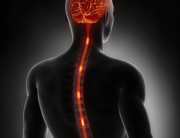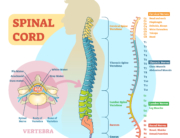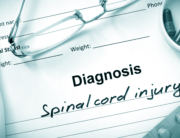If you have sustained a spinal cord injury, you might worry about how the injury will affect your life in the future. Every case is different, but you might have to deal with weakness, numbness and tingling, even paralysis. You might wonder whether you can file a spinal cord injury lawsuit against the person who caused your spinal cord injury and collect compensation for the harm and changes it brought into your life.
The person whose negligence caused your spinal cord injury can be liable for your losses if the facts of the case satisfy all the required elements of legal liability. Let’s say that you suffered the spinal cord injury from a car accident in which the at-fault driver was operating her vehicle while impaired by painkillers. We will explore all four elements of liability if you file a spinal cord injury lawsuit. Contact our team of personal injury lawyers at Montero Law Center at 954-767-6500 to receive assistance in this case today.
Elements of Negligence
Duty of care. All drivers have a duty to operate their vehicles with caution, to keep a careful lookout, and to obey the rules of the road.
Breach of duty (negligence). When a driver operates a vehicle while under the influence of narcotics, opioids, or other drugs that impair one’s attention, reaction times, or cognitive performance, the driver fails to meet her duty of care. Breaching one’s duty of care is negligence. Driving while impaired violated her duty of care because she:
- Did not operate her vehicle with caution,
- Did not keep a careful lookout, and
- Did not obey the rules of the road.
Causation of the injury. The negligence must be the main factor that causes your injury. For example, if a third party ran a red light to avoid the impaired driver and hit your vehicle, causing your injury, that third party – not the impaired driver – is liable for your damages. If, despite her condition, the impaired driver caused no harm, she is not liable to you. She can face criminal charges for driving while under the influence of drugs, but she can only be liable for your losses if her negligence caused them.
Injury must be measurable (physical damage). If you suffered a spinal cord injury, you satisfy the “measurable harm” element of liability. And since you sustained a physical injury, you are eligible for compensation for your economic losses and non-economic losses.
Economic and Non-Economic Damages
Economic damages are financial losses, which usually come with documentation, like medical bills and receipts. Examples of economic losses include:
- Medical expenses: such as the ambulance, emergency room, hospital, surgery, physicians, prescription medications, diagnostic tests, physical therapy, and spinal cord injury rehabilitation center.
- Lost wages: to reimburse you for the pay you missed out on because of the accident, hospitalization, and recuperation.
- Long-term care: if your spinal cord injury causes you to need ongoing assistance with personal care and regular medical treatments.
- Specialized equipment and modifications: for things like necessary home modifications, an adapted vehicle, wheelchairs, and respiratory equipment.
When you establish that you experienced economic losses, you can get compensation for non-economic damages as well, like:
- Physical pain
- Mental distress
- Inconvenience
- Loss of enjoyment of life
- Your spouse’s loss of consortium
How to Get Help for Your Spinal Cord Injury Lawsuit
Find out if you might have a valid case when you want to file a spinal cord injury lawsuit by meeting with us to talk about your accident. Call the Montero Law Center at 954-767-6500, and we will arrange a free consultation for you. We look forward to helping you.
 English
English  Español
Español 



